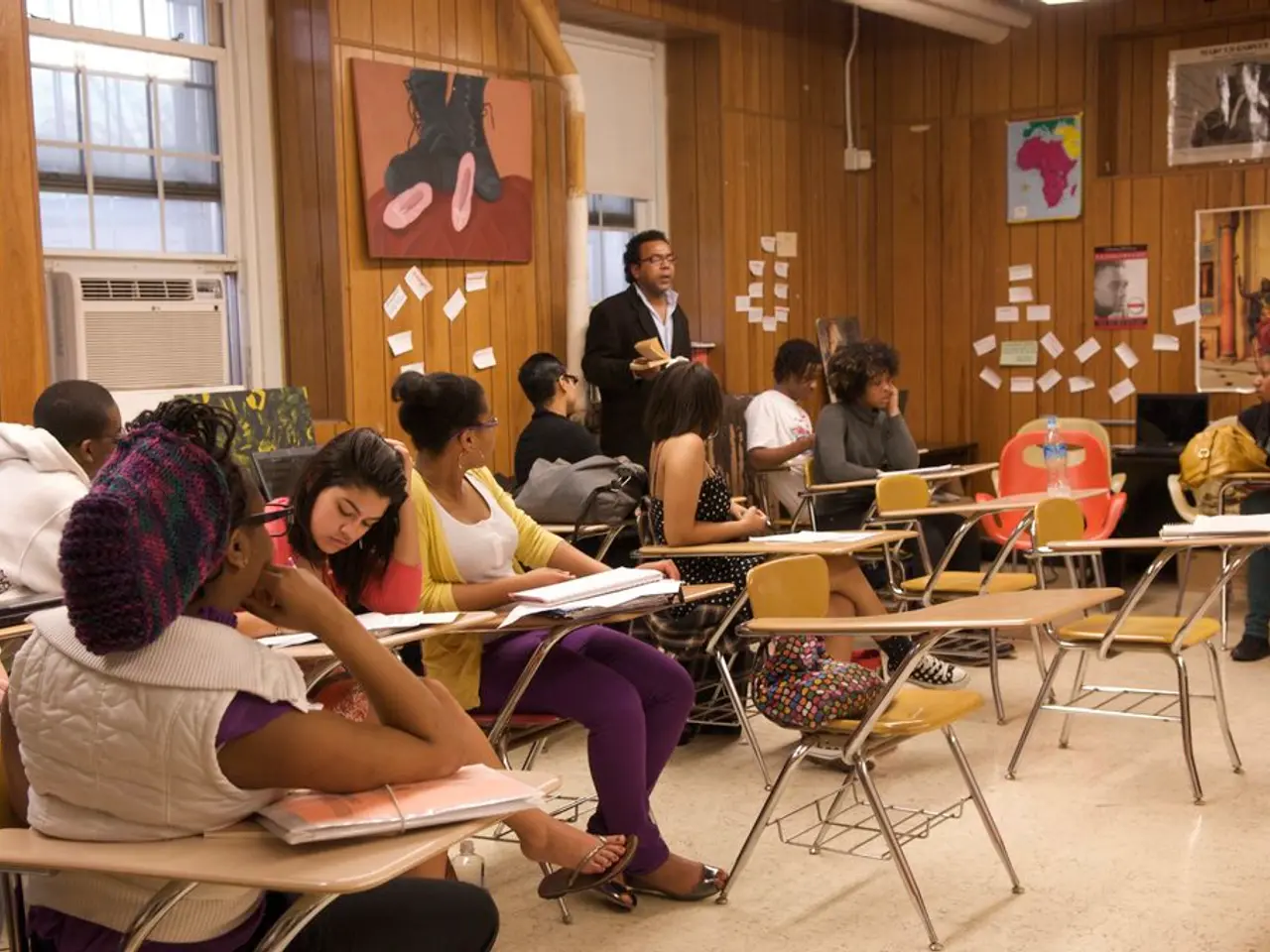Artificial Intelligence Transforms Education Approach
### Title: Revolutionizing Education: The Future of AI in Classrooms
In 2025, the educational landscape is being reshaped by innovative AI tools, focusing on personalized learning, intelligent tutoring, and adaptive testing. These advancements are offering significant benefits alongside notable ethical concerns.
One of the most notable innovations is Google's NotebookLM, an AI-powered teaching assistant that enables teachers to create personalized, dynamic learning content and interactive study guides tailored to classroom materials. Teachers can also create AI "Gems," custom AI experts designed to help students with extra support or deeper understanding, effectively personalizing tutoring at scale.
Another top educational AI technology in 2025 is Gaston, which offers advanced AI-driven capabilities, although specific educational applications are less detailed in the summary provided.
AI systems are also being used to analyze individual student learning styles and provide tailored feedback and resources, effectively serving as personal tutors available on demand. AI-driven personalized testing customizes assessments to each learner, reducing traditional cheating risks by creating unique test forms. Retrieval-augmented generation AI ensures that recommended learning materials remain relevant to course objectives, delivering quality and applicable knowledge to students.
The benefits of these AI tools are manifold. Personalization ensures that learning experiences and test materials are tailored to individual student needs and preferences, supporting more effective knowledge acquisition. Teacher support is enhanced as automation of tasks such as lesson planning and content generation frees educators to focus on personalized interactions. Academic integrity is improved with adaptive testing, and engagement is increased through interactive AI tutors and study guides. Accessibility is also improved as AI tools can democratize education by providing tailored support to diverse learners.
However, these advancements also raise ethical concerns. Privacy is a major issue as the use of student data raises concerns about data security and respect for learner privacy. Fairness and bias are also a concern as AI systems may inadvertently embed biases, leading to unfair treatment or assessment outcomes for certain groups. Overreliance on AI might reduce human interaction and impact students’ autonomous learning and creativity development. Ensuring equitable access to AI tools remains a challenge to avoid widening educational disparities. Transparency is necessary for clear AI decision-making processes to maintain trust and accountability. Finally, effective and ethical integration of AI requires comprehensive teacher training and robust regulatory frameworks.
In conclusion, AI tools in education in 2025 offer transformative potential for personalized and effective learning. However, it is vital to guide their use thoughtfully to maximize benefits and minimize risks. Developing protocols around educational AI use is essential to ensure students favour critical thinking and problem-solving efforts over quick AI answers. The Brookings Institution emphasizes the need for schools to build digital literacy programs that equip students to question, verify, and reflect. Introducing discussions on how generative AI works, what its limitations are, and how it differs from human reasoning is also crucial.
Artificial intelligence technology is revolutionizing education by providing personalized learning experiences, intelligent tutoring, and adaptive testing through tools like Google's NotebookLM, enhancing teacher support, academic integrity, and engagement. On the other hand, the use of AI in education raises ethical concerns, as it involves handling sensitive student data and potentially embedding biases, demanding careful protocol development, teacher training, and robust regulatory frameworks to ensure fairness, privacy, and promote digital literacy.




